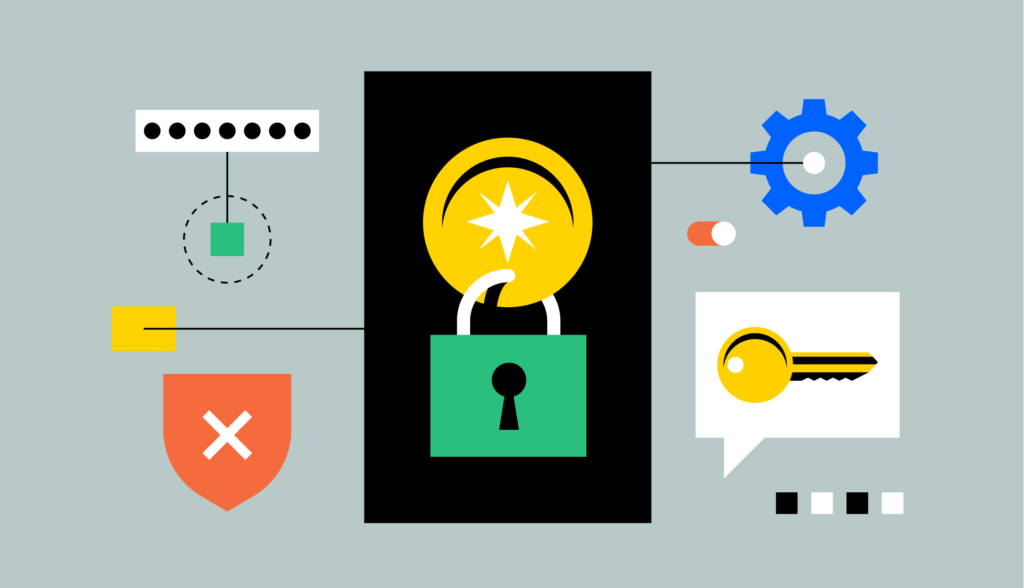In the fast-evolving landscape of digital finance, cryptocurrencies have emerged as a revolutionary force, redefining how we perceive and utilize money. The allure of cryptocurrencies lies in their decentralized nature, offering unparalleled financial freedom and privacy. However, with great power comes great responsibility, and safeguarding your digital assets is paramount. At the heart of this security lies the crypto wallet, a tool as essential as it is misunderstood. This article delves into the best practices for using a crypto wallet, ensuring your digital assets remain secure in an increasingly digital world.
Understanding Crypto Wallets: The Basics
A crypto wallet is more than just a digital equivalent of your leather wallet. It serves as a secure digital storage that manages your private keys, the secret codes that grant access to your cryptocurrencies. Unlike traditional wallets, a crypto wallet does not store actual coins but the keys to access your digital currency on the blockchain. Understanding this fundamental difference is crucial for anyone looking to venture into the world of cryptocurrencies.

There are various types of crypto wallets, each with its own set of advantages and security features. Hardware wallets, for example, are physical devices that store private keys offline, making them immune to online hacking attempts. Software wallets, on the other hand, are applications that can be installed on your computer or smartphone, offering a convenient and user-friendly way to manage your assets. It’s essential to choose a wallet that aligns with your needs and security preferences, balancing convenience with robust protection.
Securing Your Crypto Wallet: Best Practices
To ensure the security of your digital assets, it’s crucial to follow best practices when using a crypto wallet. One of the most fundamental steps is to use a strong, unique password for your wallet. This password should be a combination of letters, numbers, and symbols, and it should be different from any other passwords you use. Additionally, enable two-factor authentication (2FA) whenever possible. 2FA adds an extra layer of security by requiring a second form of verification, typically a code sent to your mobile device, making it significantly harder for unauthorized users to gain access.
Another critical practice is to back up your wallet regularly. Most crypto wallets provide a seed phrase, a series of words that can be used to recover your wallet if you lose access. Write down this seed phrase and store it in a secure location, such as a safe. Avoid storing it digitally where it could be vulnerable to hacking. Regular backups ensure that you can always regain access to your assets, even in the event of hardware failure or loss.
Staying Vigilant: Recognizing and Avoiding Threats
The world of cryptocurrencies is rife with potential threats, from phishing attacks to sophisticated malware. Staying vigilant and informed is your best defense. Phishing attacks often come in the form of emails or messages that appear to be from legitimate sources but are designed to steal your personal information. Always double-check the sender’s email address and look for signs of authenticity. Never click on links or download attachments from unknown or suspicious sources.

It’s also vital to keep your wallet software up to date. Wallet providers frequently release updates that patch security vulnerabilities and enhance functionality. Regularly updating your software ensures you have the latest security measures in place. Additionally, consider using a dedicated device for managing your crypto assets. This device should be free from unnecessary applications and used solely for accessing your wallet, reducing the risk of malware infection.
Conclusion
As cryptocurrencies continue to gain mainstream acceptance, the importance of securing your digital assets cannot be overstated. A crypto wallet is your gateway to the world of digital finance, and understanding how to use it safely is essential. By following best practices such as using strong passwords, enabling two-factor authentication, and staying vigilant against potential threats, you can protect your investments and enjoy the benefits of this revolutionary technology. Remember, in the digital realm, security is a continuous process, requiring constant awareness and proactive measures. Embrace these practices, and you can navigate the world of cryptocurrencies with confidence and peace of mind.
